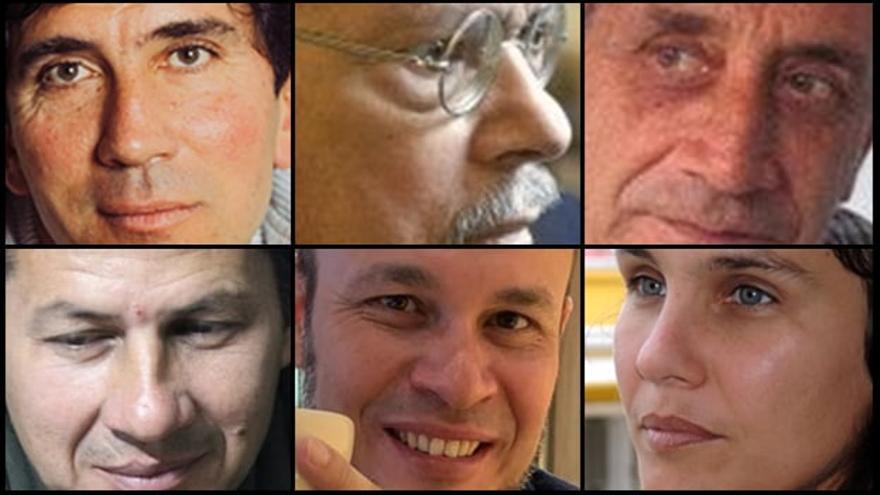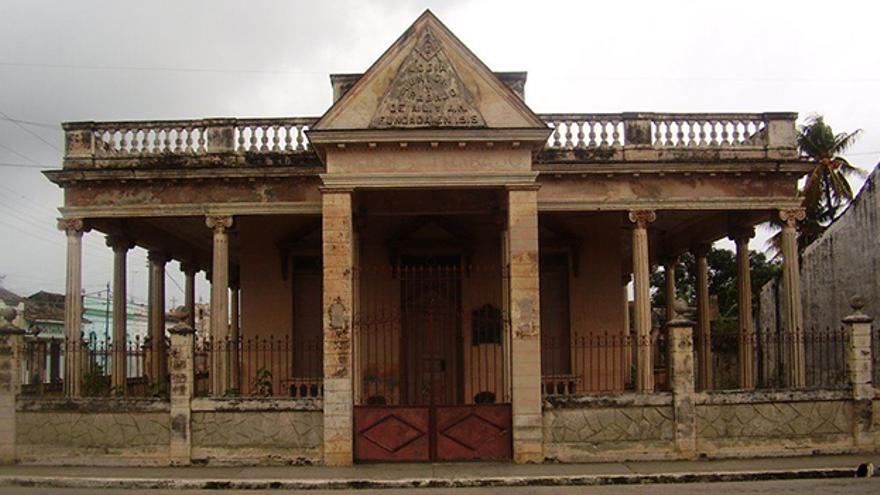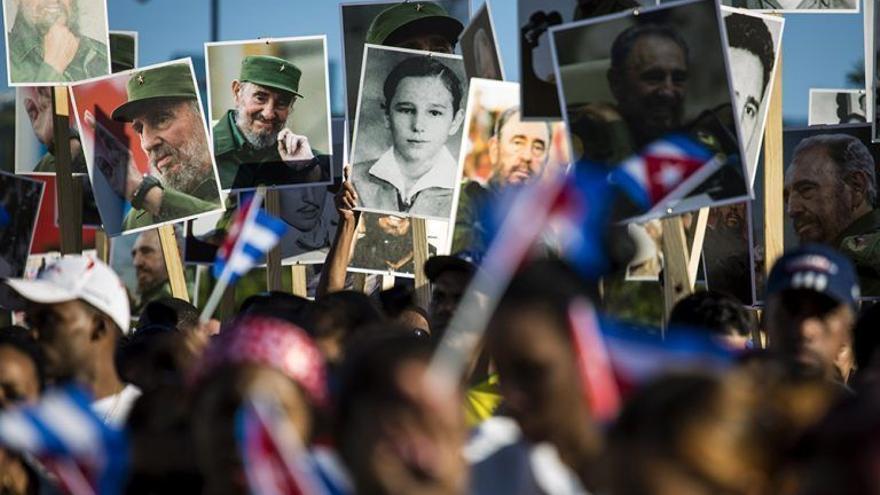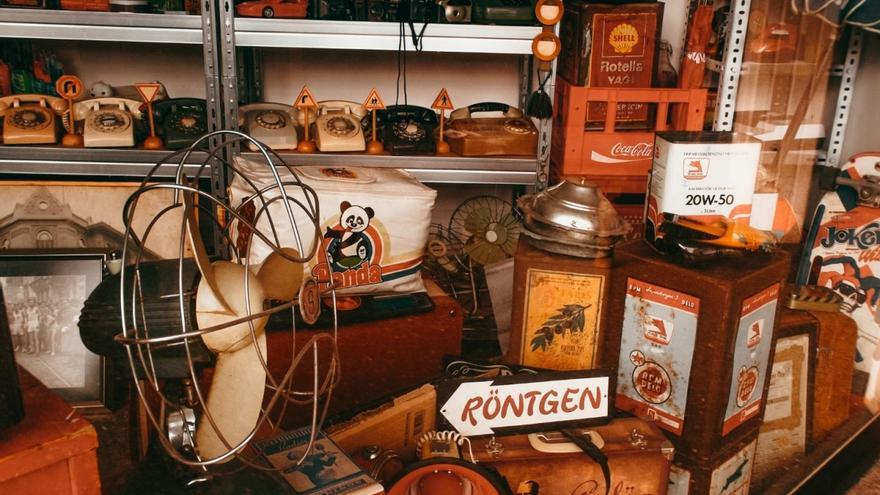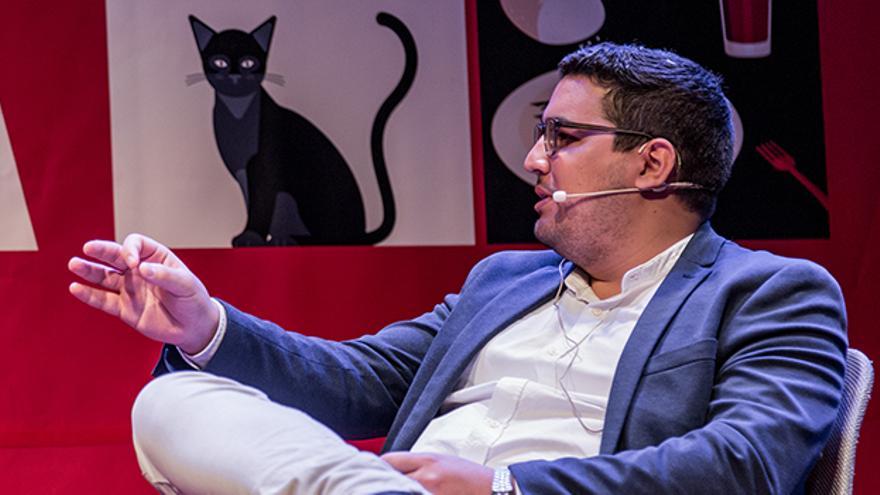
![]() 14ymedio, Xavier Carbonell, Salamanca, May 22, 2022–Those who think that all ciberclarias* are slick and anonymous are mistaken. Some come with pedigree and martial ranks. There is a group of ever-loyal comrades, trained in military or Party schools, who do not understand the Five Grey Years, nor the special periods, nor have they foreseen crises other than capitalism.
14ymedio, Xavier Carbonell, Salamanca, May 22, 2022–Those who think that all ciberclarias* are slick and anonymous are mistaken. Some come with pedigree and martial ranks. There is a group of ever-loyal comrades, trained in military or Party schools, who do not understand the Five Grey Years, nor the special periods, nor have they foreseen crises other than capitalism.
Antonio Rodríguez Salvador belongs to this caste of commissars, censor by vocation and certainly by trade. Last week, I came upon an article by this subject where he demonstrated stupefaction at one of my statements, published in this and other dailies: that the Italo Calvino Prize for Novels — one of Cuba’s most prestigious — had been awarded to me last year and I rejected it in favor of another literary award offered in Salamanca, where I now live.
With more reluctance than skill, what Rodríguez Salvador suggests is that the author of this column must be unhinged, a pathological liar, and that the news outlets that interviewed me, among them El País and 14ymedio, displayed lack of professionalism by speaking with a deranged man.
My first reaction was compassionate laughter, because I understand that the business of defending Castroism is ever more difficult and everyone has to make a living. I understand that Humberto López’s yapping and that of the so-and-so from Con filo — I never remember his name — eclipse the humble trade of censoring in writing, in La Jiribilla or in Granma. continue reading
The nonsense of this CDR [Committee for the Defense of the Revolution] member — inconceivably, a reader of independent news outlets — not only implicated me, but also a colleague at this daily. Thus, to dispel any of my censor’s doubts, I will clarify a couple of points about that day when I received two awards for a single novel.
Toward the end of October 2021 a dark personality called me from Uneac (National Union of Writers and Artists in Cuba) — I don’t plan to identify him, but Rodríguez Salvador must know who I am speaking of: “Don’t act like you don’t know,” he said, “you won the Italo Calvino.” My interlocutor assumed that the Uneac officials in Santa Clara, where I lived and worked, had already spread the rumor. But they were miraculously discreet and I only found out during that phone call. “We do not have a way to get you here, so figure it out.”
Then he read to me the remarks of the judges, which included Roberto Méndez, Carlos Zamora, and Gaetano Longo, which included beautiful and very generous words about the novel. If they are gentlemen and honorable, they will say whether I lie.
On that day I received two missed calls from a Spanish number. I responded and it ended up being the office of the mayor of Salamanca, who on the following day gave me the news of the other prize. When I presented the situation to the person at Uneac, his words were these, “The Spaniards will take the money back when they find out and furthermore you will cause political issues for us with the Italian Embassy, which funds the one here.”
Due to copyright, I could not accept both awards. I opted for the Peninsula’s award, and not for metaphysical reasons: it offered more money and would allow me to leave an oppressive, castrating country where those who travel, live, and triumph — paid by the Government — are the commissars like Rodríguez Salvador, who takes photos of himself “strolling in Buenos Aires” during that country’s book fair.
“Well,” clarified the person from Uneac when I communicated my decision, “we’ve reached a new agreement and there is no problem with your resignation. Send it to me in writing.” His tone, always vulgar and now evasive, had changed since our last conversation. “You know,” he said before hanging up, “that if you say anything, we will categorically deny it.” The prize was awarded in November to writer and finalist, Dazra Novak, who undoubtedly deserved it.
They knew the results since the beginning of 2021. Uneac kept it a secret because the pandemic restrictions prevented Italians from traveling to the country with the 4,000 euros. The fact that one novel on surveillance, paranoia, and censorship had won the prize is a symptom of how weary they, the commissars themselves, are of the game, the act, and the secrecy.
Paradoxically, Uneac opted to hide everything, begin from scratch, and “categorically deny.” The Association’s panic of the “irregular” explains why Antonio Rodríguez Salvador does not have the slightest idea of what happened and accused me of post-modern piracy.
Among other finesse of intellect, the Sancti Spiritus-based writer rambles on about my opinions of the Pope, spiritual fulfillment, and life on the island. “It may be that for this author it is less profitable to publish his works in Cuba than portray himself as censored by the regime,” he concludes.
Rodríguez Salvador forgets — conveniently — what I said in that same magazine and now repeat. I am not interested in playing the role of a censored intellectual (although I was and many times); I am not a writer of political literature (though I am a citizen with the right to criticize the Government of his country) nor do I dramatize exile. I care about writing and living, freely and decently, and that is impossible in Cuba.
“On the conscience of glorified ciberclarias like Rodríguez Salvador are the young prisoners and exiles of the Island. Those who die crossing borders to escape their country. Their families. The censors, for cowardice, money or the inherent malice of mediocrity, are the dictatorship’s most sordid accomplices. If they weren’t so dangerous and infamous, they’d only evoke pity.”
*Translator’s notes: The so-called “cyberclarias” are accounts that hide behind false identities and photos to defend the actions of the Cuban government on Twitter and attack criticism made by dissidents or activists. (Source)
Translated by: Silvia Suárez
____________
COLLABORATE WITH OUR WORK: The 14ymedio team is committed to practicing serious journalism that reflects Cuba’s reality in all its depth. Thank you for joining us on this long journey. We invite you to continue supporting us by becoming a member of 14ymedio now. Together we can continue transforming journalism in Cuba.

